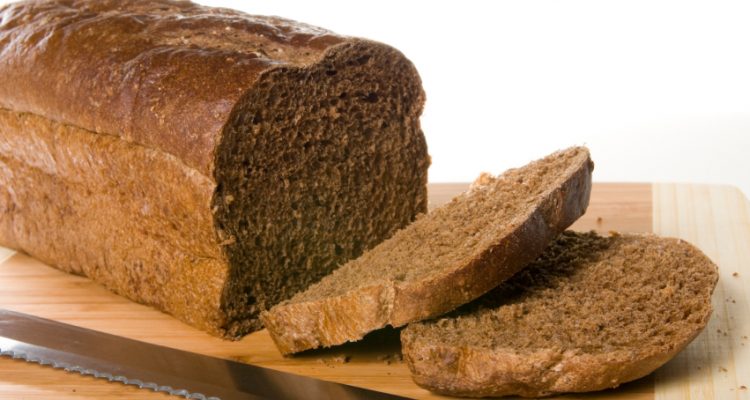
Rye bread—consuming whole grain rye bread specifically—can potentially prevent obesity, cardiovascular disease and type 2 diabetes, according to a new study published in the journal PLoS ONE. Researchers think it could be due to bacteria in the colon fermenting complex carbohydrates (i.e. dietary fiber).
Study researchers investigated the effects of appetite regulation the following day after participants ate rye kernel bread (rich in dietary fiber) as an evening meal. Researchers also looked at the cardiometabolic risks (this refers to one’s chances of having stroke, heart disease or diabetes).
For the study, either whole grain rye kernel bread or white bread was provided as late evening meals to healthy adult participants. The bread was provided as a single evening meal or as three consecutive evening meals. Test variables were measured in the morning (about 10 – 13 hours after bread consumption).
Researchers tested appetite ratings as well as appetite regulating hormones, glucose metabolism, inflammatory markers, and short chain fatty acids (SCFA) in the blood. They discovered that rye kernel bread (as an evening meal) has an anti-diabetic potential; furthermore, since researchers saw an increased release of satiety hormones, or feeling “full” they concluded that whole grain rye kernel bread could also be beneficial in preventing obesity.
Rye Bread and Decreased Hunger
The study’s findings support previous research published in the journal Appetite, where researchers suggest that wholegrain rye bread is associated with sensations of decreased hunger. This could in part be due to colonic fermentation after a subsequent meal (bacteria in the colon fermenting complex carbohydrates).
In their randomized, controlled study, 12 healthy males each consumed three evening test meals that included white wheat bread, wholegrain rye kernel bread or boiled rye kernels. Breath hydrogen excretion, energy intake and individual appetite sensation were assessed at various intervals after eating meals. Researchers concluded that eating wholegrain rye bread and rye products lowered the ensuing intake of energy in the healthy young male participants—possibly due to colonic fermentation.
Sources for Today’s Article:
Sandberg, J. C., et al., “Rye-Based Evening Meals Favorably Affected Glucose Regulation and Appetite Variables at the Following Breakfast; A Randomized Controlled Study in Healthy Subjects,” PLoS ONE, March 18, 2016; doi: 10.1371/journal.pone.0151985.
Ibrugger, S., et al., “Second meal effect on appetite and fermentation of wholegrain rye foods,” Appetite, 2014 Sep; 80:248-56. doi: 10.1016/j.appet.2014.05.026.














